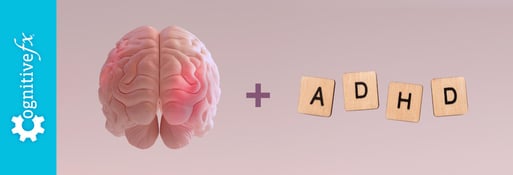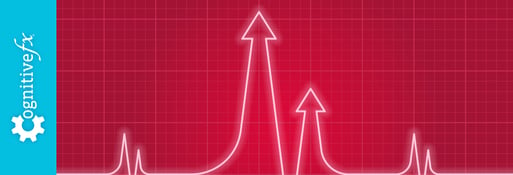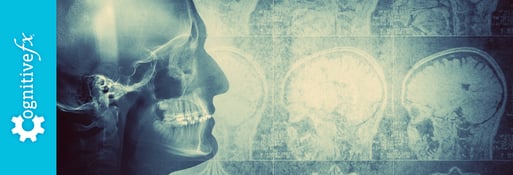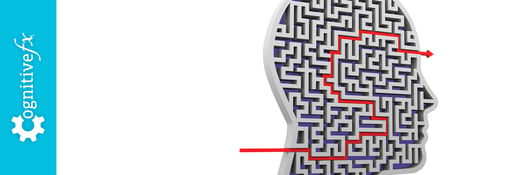We know that there are millions of individuals who suffer from concussions yearly. There is no better time than now to expand our knowledge and application of research to help individuals recognize there is hope and recovery when addressing brain injury. There is a lot of information available about concussions and mTBI (mild Traumatic Brain Injury) and we want to share what recent research has taught us when it comes to concussion myths and facts.
Concussion Myth: To get a concussion one must pass out or hit their head.
mTBI is defined as “the result of the forceful motion of the head or impact causing brief change in mental status (confusion, disorientation or memory loss) or loss of consciousness for less than 30 minutes.” Notice here the definition mentions forceful motion OR impact OR loss of consciousness.
Concussion Fact: You can get a concussion without passing out and/or without hitting your head.
Since the brain is essentially floating in water and connected to our spinal cord via the brain stem one can get a concussion from forceful motion of the head, like whiplash. Yes, hitting your head can increase your risks of having a concussion but you do not have to pass out or receive a hard hit to sustain a concussion.
Concussion Myth: A concussion is not a Traumatic Brain Injury (TBI).
Traumatic Brain Injury is a very real concern. There are many types of brain injury and although concussions are typically seen as the lowest form of a brain injury, the standard of recovery time can be anywhere from a few months to a few years. If left untreated, concussions can also cause substantial difficulties and impairments in function that can last a lifetime. (Brain Injury Alliance of Utah | United States Brain Injury Alliance)
Concussion Fact: A concussion is a mild form of TBI known as mTBI.
Although, it is called “mild,” the symptoms can be severe, and can last a lifetime if not treated or addressed. ANY INJURY to the brain is not considered good.
Symptoms of a Concussion or mTBI include but are not limited to:
- Fatigue
- Headache
- Visual Disturbance
- Memory Loss (Short or Long)
- Poor Concentration
- Sleep Disturbance
- Dizziness or Loss of Balance
- Emotional Disturbance |
- Feelings of Depression
- Seizures
- Nausea
- Loss of Smell
- Sensitivity to Light and/or Sound
- Mood Changes or Irritability
- Getting Lost or Confused
- Slowness in Thinking |
Concussion Myth: STOP all activity until you make a full recovery.
It is common belief that a patient or athlete should completely restrict all activity in order to recover from a concussion. This means making changes in your lifestyle to accommodate an impaired brain. Based on this approach, one could wait many months to years before returning to normal life again.
Concussion Fact: Resting after an injury is important but if you rest for too long, then it may slow recovery time.
No evidence supports the claim that COMPLETE restriction of all activity accelerates recovery. Additionally, no evidence exists showing cognitive activity to increase one’s risk for further concussion. In fact, brains have been shown to benefit from appropriately-timed exercise (Thomas et al., 2015; Majerske et al,. 2008).
Concussion Myth: Most concussions are sports related.
While concussion can be a concern in contact sports, they are not the leading cause of injury.
Concussion Fact: According to the most recent research done by the CDC, 40.5% of all documented concussions are a result of a fall. 19% are unknown, 15.5% are struck by or against (unintentional blunt force trauma), 14.3% are from motor vehicle accidents, and 10.7% are from assault.
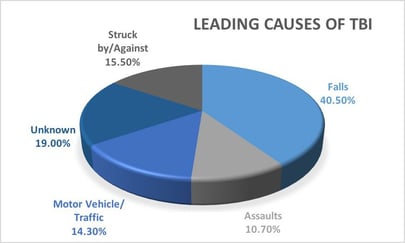
According to the CDC out of reported injuries falls account for over 40% of concussions. The highest populations at risk for injury from a fall according to their data include children from the ages of 2- 14 and adults aged 65 or older.
While it can be a concern to receive a concussion playing sports, understanding how to prevent concussions, and to recognize concussions can help decrease the severity of injury. Establishing a protocol to recognize injury to help athletes stop play and return to play at appropriate times will also help increase recovery.
Concussion Myth: You don’t look like something is wrong with you, so nothing is wrong with you.
Many times, individuals do not receive proper care after a concussion because it may not look appear like something is wrong. While it can be challenging to recognize and diagnose a concussion, one cannot simply look at a person and tell. It is not as easy as seeing someone with a broken arm or leg.
Concussion Fact: Impairments after a concussion can be very hard to understand and see. However, this does not make the existence or impact on an individual any less real. mTBI is a real injury with real symptoms and impairments.
Impairments from a concussion can last months to years after injury. These impairments are life altering and can change not only one’s personality, but functioning, processing, emotional stability and more. Essentially the ability to live life the same ways they did before their injury is not feasible because of the after-effects of the injury. It is important to understand that because the brain was injured, getting the proper care to push the brain to recover and recreate optimal pathways is key in regaining control of life.
We have seen hundreds of patients. Many of our patients have seen a variety of specialists, some getting a little better and others seeing no improvement. It is not uncommon for us to hear a patient say “I have lost hope” or “there is very little hope left for me.”
We also have seen many patients who have felt like they were treated poorly, as if they were making their symptoms up or exaggerating their circumstances. Patients also have described experiencing a profound sense of loss. The main stream message that this is how they will be the rest of their lives, a brain injury survivor, is hard for individuals to accept.
In reality, our research findings are showing that one can recover from a concussion and that there is hope and healing. We are seeing that an individual can recover and improve their function based on the concept of neuroplasticity, and we have seen this in hundreds of patients.
Concussion Myth: Once diagnosed with Post-Concussion Syndrome, you may never recover.
There is much we are still learning about the brain. Ironically, when the most important organ is damaged, we only have one diagnosis - “Concussion” or mTBI.
If it were a knee injury, there are many diagnoses. This is due to the fact that there has been more research and time spent in understanding the knee, which gives doctors the ability to be very precise in their diagnosis. Technology has been a limitation in understanding the brain, but as it continues to evolve, there is more we can do to understand the brain’s functions, limitations, and the recovery process.
Concussion Fact: You can recover and you can improve your brain function through EPIC treatment.
Using fNCI (functional NeuroCognitive Imaging) technology, we have been able to scan and analyze close to 1000 human brains. Our research has given us the opportunity to understand and create a range that helps us identify the severity of a brain injury. 0-1 on that scale is considered normal functioning and 6 on that scale is considered a severe brain injury.
fNCI takes a deeper look at over 60 regions of the brain to evaluate its functioning. Neuromarkers are used to measure deficits in functioning and to tailor “appropriately-timed exercises” providing optimal, targeted and individualized EPIC Treatment results. Our longitudinal studies are showing that treatment is effective in improving functioning in 50% of our patients by 73.68% and improving symptoms in 50% of our patients by 65.81% and are lasting results.
What other important facts are we missing that we should include? Comment below!





